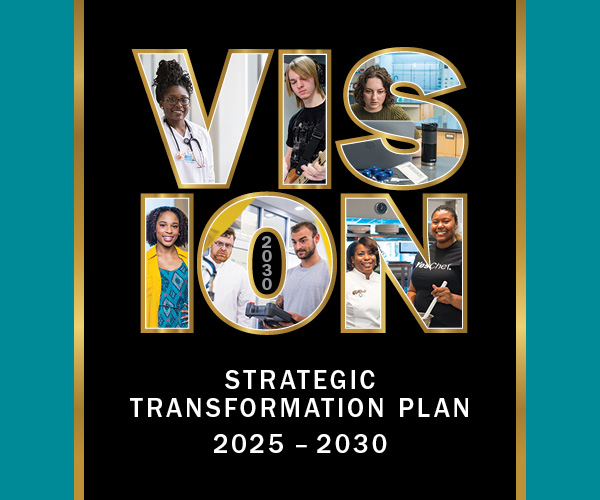Tri-C Joining National Effort To Design the College of the Future To Transform Community Colleges
Education Design Lab convening five institutions to develop and implement strategic plans to improve outcomes for learners
 CLEVELAND — Cuyahoga Community College (Tri-C®) will join a national initiative that will seek to meet the evolving needs of students, community members and the local workforce. Together with the Education Design Lab (the Lab), Tri-C and four other community colleges will work to reorient their program offerings around "new majority learners" and the skills they need to succeed in the workforce.
CLEVELAND — Cuyahoga Community College (Tri-C®) will join a national initiative that will seek to meet the evolving needs of students, community members and the local workforce. Together with the Education Design Lab (the Lab), Tri-C and four other community colleges will work to reorient their program offerings around "new majority learners" and the skills they need to succeed in the workforce.
During the next three to five years, Tri-C and other institutions will develop strategic plans with the Lab's guidance to reimagine community colleges for the future, implement those plans, and measure their success.
The goal is to make learners' skills more visible to employers and educational pathways clearer and stackable, which helps ensure learners have job-relevant applied learning experiences and equitable access to support services.
"Students come to us with a vision of a brighter future and the belief that education can help them get there. It is our job to deliver on that belief by developing programs that help learners achieve an economic advantage and access meaningful careers," said Tri-C President Michael A. Baston, J.D., Ed.D. "Together with Education Design Lab, we are seizing a once-in-a-generation chance to transform the way we meet students' needs and shore up faith in community college as a pathway to greater opportunity."
The College is beginning an inclusive process to develop and refine a new mission and a set of strategic directions for Vision 2030. The planning process will establish a framework that unites Tri-C's academic programs, noncredit workforce offerings and professional development opportunities into a seamless, lifelong educational system.
Community colleges — which altogether serve about 9 million learners — are gaining national recognition for providing accessible, affordable pathways to economic mobility. Known for hyperlocal employer partnerships and short-term credentials and certificates, community colleges connect learners with good-quality, well-paying jobs, resulting in lower unemployment rates and higher earnings potential than workers with a high school diploma or less.
However, community colleges often operate with less staff, lean budgets and minimal resources, which makes it challenging to add new courses to their catalogs to meet evolving local workforce demands.
Selected for their innovative practices and presidential leadership, participating community colleges include:
- Rio Salado College, Arizona, led by President Kate Smith
- St. Paul College, Minnesota, led by President Deidra Peaslee
- Forsyth Technical Community College, North Carolina, led by President Janet Spriggs
- Tri-C, led by President Michael A. Baston
- Lone Star College-Tomball, Texas, led by President Lee Ann Nutt
February 13, 2025
MEDIA CONTACT: Anthony Moujaes, 216-987-3068 or anthony.moujaes@tri-c.edu
